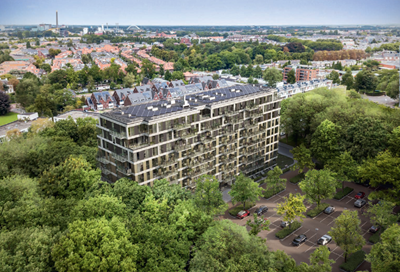- Home EN
- News
- Latest news
- 2020
- ULI research on affordable housing: transparency and trust needed
ULI research on affordable housing: transparency and trust needed
Accessibility to housing through affordability is a core principle of the Bouwinvest Residential Fund in the Netherlands. We have therefore supported the Urban Land Institute's (ULI) research into this area to see if we can gain insights from other European countries on how they maintain access to residential markets for their populations in the main cities. Can the Dutch cities learn from neighbouring European metropolises in finding solutions to the great contemporary challenges of strong urbanisation trends and the pressure this brings to bear on affordability? The key conclusion of the ULI research was that adopting best practices in public-private partnerships based on certainty, transparency and trust are essential to success.

ULI’s research addressed the issue of homes for middle-income groups whose earnings are too high to qualify for social housing, but are insufficient to be able to afford upper-tier rental levels, or buy their own apartments. The research showed that the role of the public sector is essential in the creation of policy frameworks allowing the realisation of greater supply of mid-level rental properties.
Some of the main conclusions of the ULI research included:
- The availability and high price of land are frequently major impediments to the development of mid-market rental properties;
- Build trust between the public and private sectors;
- A clear long-term vision from the public sector enables housing supply to be realised faster;
- Overly restrictive regulation creates more risk for investors and reduces residential development, so mutual compromises are required;
- The initial provision of adequate infrastructure for an area is critical for its suitability for mid-market rental housing.
Read the complete report here.
